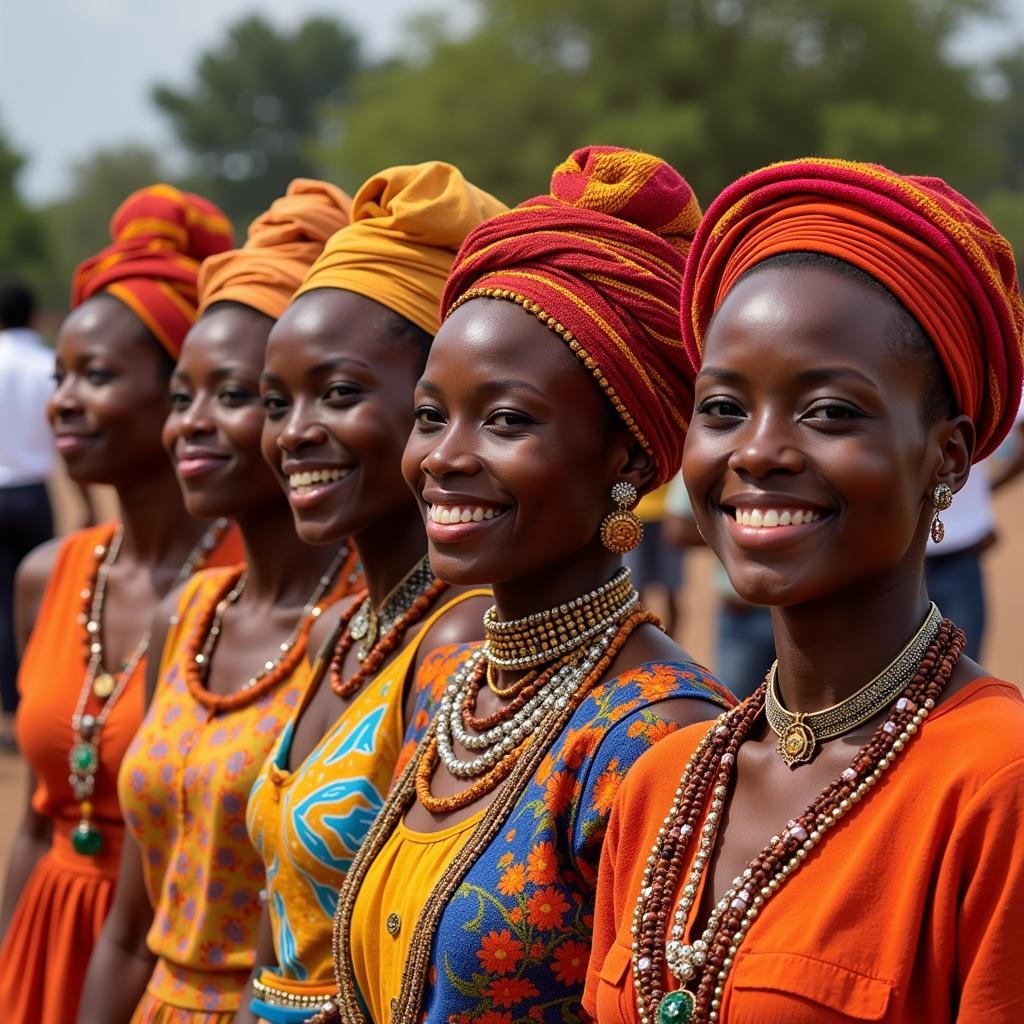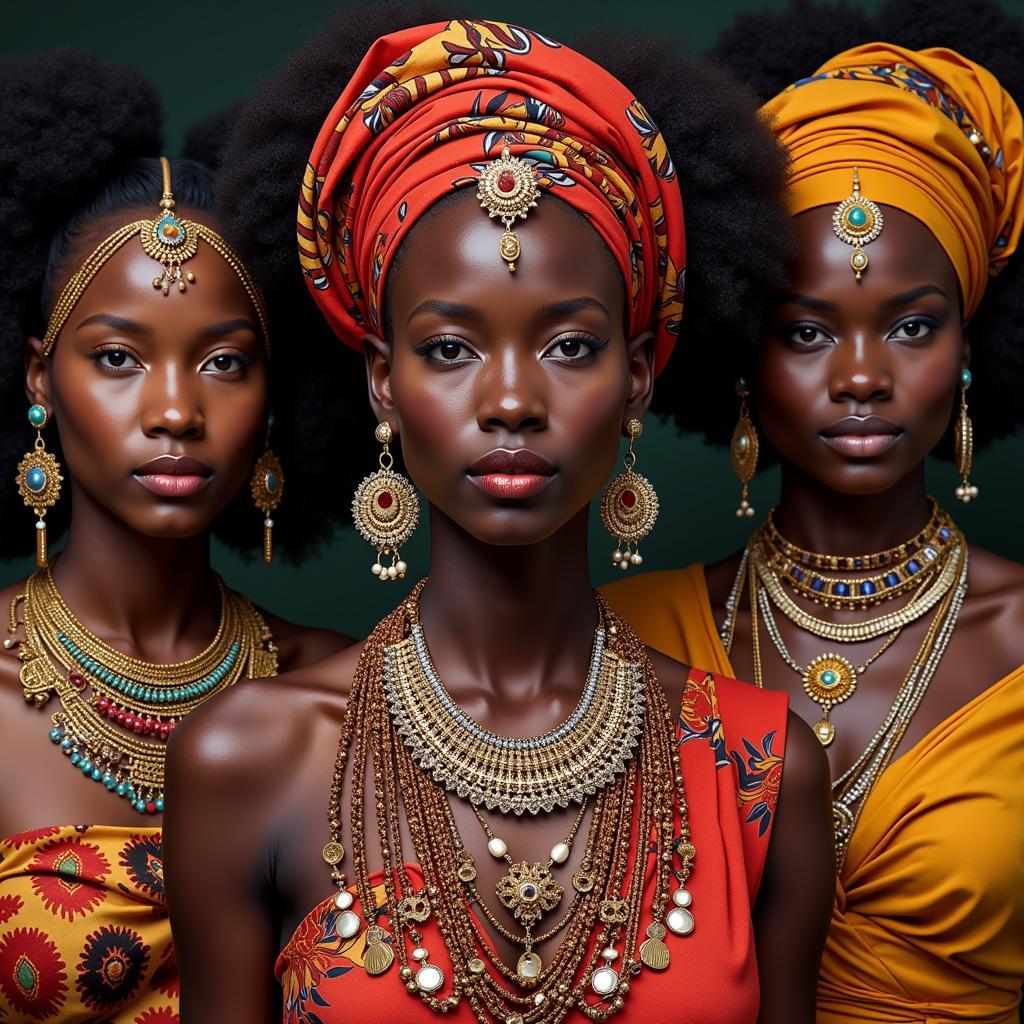African Elephant Offspring Per Pregnancy: Unveiling the Giants’ Reproductive Journey
The African elephant, a majestic symbol of the savanna, holds a fascinating reproductive story. Understanding how many offspring an African elephant has per pregnancy, or “African Elephant Offspring Per Pregnancy,” offers a glimpse into their complex social structures and survival strategies. This article delves into the intricacies of African elephant reproduction, exploring the factors that influence their offspring count and the challenges they face in nurturing their young. african elephant gestation period
The Typical African Elephant Pregnancy: One Calf at a Time
African elephants typically give birth to a single calf per pregnancy. While twins can occur, it’s a rare phenomenon, estimated to happen in only around 1% of births. The long gestation period, resources required to raise a calf, and the mother’s physical limitations all contribute to this single-offspring norm. The sheer size and developmental needs of a baby elephant demand immense energy and care from the mother, making it challenging to raise multiple calves simultaneously.
Why Don’t African Elephants Have More Offspring?
Several factors contribute to the single-calf pregnancies in African elephants. The extended african elephant pregnancy length of nearly two years demands significant resources from the mother. This long gestation requires substantial energy and nutrients, which would be even more demanding if she were carrying multiple fetuses. Furthermore, the calf’s considerable size at birth and its dependence on the mother for several years necessitate dedicated care and protection.
Factors Influencing African Elephant Reproduction
Beyond the typical single calf birth, various factors can influence an African elephant’s reproductive success. Environmental conditions, such as food availability and drought, play a significant role. During periods of scarcity, pregnancies might be delayed or even terminated naturally. Similarly, the elephant’s social structure and herd dynamics influence breeding patterns and calf survival. Dominant females often have greater access to resources, increasing their chances of successful pregnancies.
How Often Do African Elephants Give Birth?
Female African elephants reach sexual maturity around the age of 10-12 years, but typically start breeding a few years later. The interval between births is generally 3-6 years, allowing the mother ample time to care for and wean her calf. This extended inter-birth interval also helps maintain a healthy population density and ensures sufficient resources for both mother and offspring.
The Importance of Understanding “African Elephant Offspring Per Pregnancy”
Understanding the reproductive patterns of African elephants, including “african elephant offspring per pregnancy,” is crucial for conservation efforts. Knowing the factors that affect their breeding success helps researchers and conservationists develop effective strategies for protecting these magnificent creatures. african elephant breeding facts provide valuable insights into their population dynamics and vulnerability to environmental changes.
Dr. Anika Mosi, a renowned wildlife biologist specializing in African elephant behavior, states, “The long gestation and single-calf births highlight the immense investment female elephants make in their offspring. This underscores the importance of protecting their habitat and mitigating threats to their survival.”
Challenges Facing African Elephant Reproduction
Poaching, habitat loss, and human-wildlife conflict pose significant threats to African elephant populations and their reproductive success. These challenges disrupt their social structures, limit access to resources, and increase stress levels, all of which can negatively impact breeding rates and calf survival. Protecting their habitat and combating poaching are essential for ensuring the future of these iconic animals.
Dr. Jabari Olufemi, a conservationist working in East Africa, adds, “The reproductive vulnerability of African elephants underscores the interconnectedness of conservation efforts. Addressing habitat loss and human-wildlife conflict is crucial for supporting their reproductive success and ensuring the long-term survival of the species.”
Conclusion
The African elephant’s reproductive strategy, characterized by single-calf pregnancies and long gestation periods, is a testament to their adaptation to the savanna environment. Understanding “african elephant offspring per pregnancy” and the factors influencing their reproductive success is vital for implementing effective conservation measures. Protecting their habitat, combating poaching, and mitigating human-wildlife conflict are paramount to ensuring that these magnificent giants continue to roam the African plains for generations to come. african elephant pregnant animals african elephant weight at birth
FAQ
- How many offspring does an African elephant typically have per pregnancy? Typically one.
- Are twin births common in African elephants? No, twin births are rare.
- How long is an African elephant’s gestation period? Around 22 months.
- What factors influence African elephant reproduction? Environmental conditions, social structure, and human impact.
- Why is it important to understand “african elephant offspring per pregnancy”? It helps in developing effective conservation strategies.
- What are the main threats to African elephant populations? Poaching, habitat loss, and human-wildlife conflict.
- How can we contribute to African elephant conservation? Support organizations working to protect their habitat and combat poaching.
Need further assistance? Contact us at Phone: +255768904061, Email: kaka.mag@gmail.com, or visit our office at Mbarali DC Mawindi, Kangaga, Tanzania. Our customer service team is available 24/7.


